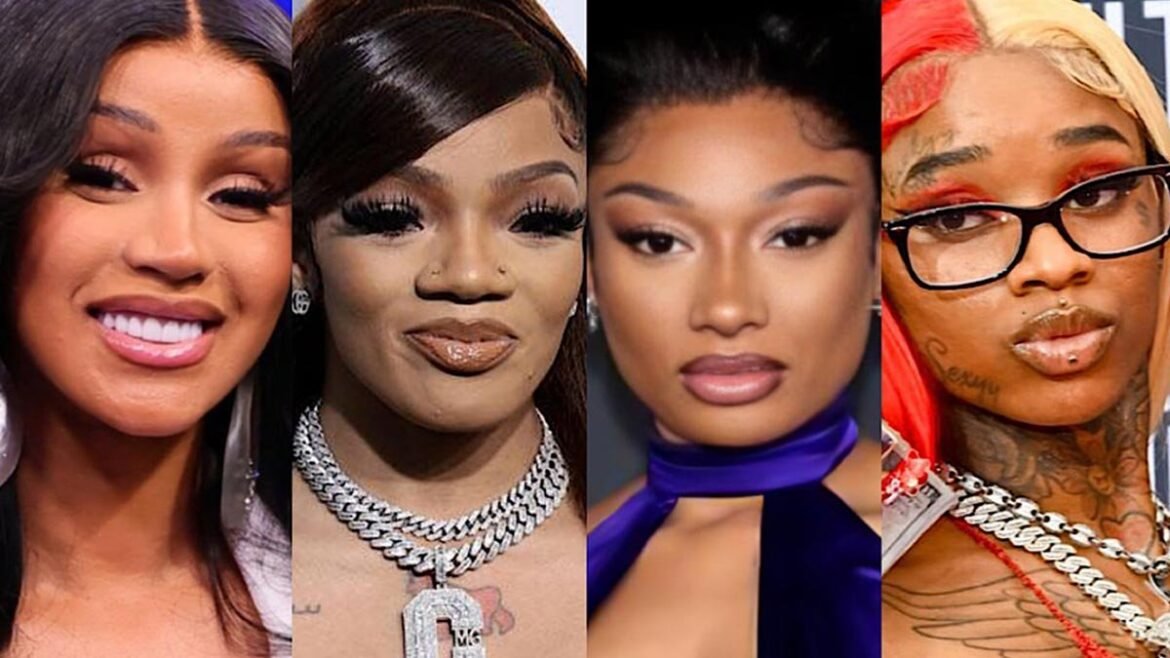How Female Rap Lyrics Shape the Lives of Black Women :
By: Jason Innocent
In recent years, the music of artists like Sexy Redd, Ice Spice, Latto, and many more has garnered significant attention, sparking discussions about the implications of their lyrics for African American women. While some listeners celebrate these artists for their bold expression and unapologetic attitude, a closer examination reveals a troubling narrative that can perpetuate negative stereotypes and impact self-image.
One of the most pressing concerns is the objectification of women present in many of these songs. Lyrics often focus heavily on physical attributes, reducing women to mere objects of desire. This reductionist view can overshadow their individuality and humanity, perpetuating a narrow understanding of what it means to be a woman, particularly an African American woman. When women are portrayed primarily through a lens of physicality, it stifles recognition of their strengths, achievements, and complexities.
Moreover, the reinforcement of stereotypes is another significant issue. Many of these songs rely on clichés that paint African American women in a specific light, often linked to hypersexuality. These portrayals misrepresent the diverse experiences of African American women and contribute to societal perceptions that can be damaging. Such stereotypes can influence how they are viewed in various settings, from professional environments to personal relationships.
The debate around empowerment is equally nuanced. Some artists argue that their music recaps their narratives, transforming traditionally derogatory terms into symbols of strength. However, critics contend that the explicit nature of the lyrics can sometimes exploit rather than uplift. This tension raises important questions about the true nature of empowerment and whether it can coexist with the objectification and commodification of women’s bodies.
Additionally, the impact of these lyrics on self-image cannot be overlooked. For many young women, the messages conveyed in popular music can shape their perceptions of themselves and their worth. The glorification of certain lifestyles and appearances can lead to issues with self-esteem and body image, as listeners may feel pressured to conform to unrealistic standards.
Lastly, the reinforcement of negative behaviors in lyrics poses a significant concern. Many songs celebrate unhealthy relationships, promiscuity, and substance abuse, potentially normalizing these behaviors among impressionable audiences. Such messages can have real-world consequences, influencing choices and attitudes that may detract from personal growth and well-being.
As someone who has sisters and hopes to have a daughter in the future, I find this topic resonates deeply with me. I don’t want either to believe that success relies solely on physical attributes or that such portrayals define their worth. Young women must see themselves represented in diverse and empowering ways beyond the narrow confines of objectification.
While discussions surrounding music and its societal impact are multifaceted, it is vital to highlight the experiences and perspectives of African American women themselves. Some may find empowerment in the same lyrics that others criticize, illustrating the complexity of representation in art.
Ultimately, as music consumers, we must engage critically with the messages conveyed in popular culture. By fostering discussions about the implications of these lyrics, we can work towards a more nuanced understanding of representation and its impact on the lives of African American women. In doing so, we support the artists we admire and uplift the voices and experiences of those navigating a world shaped by these narratives. We are responsible for advocating for a culture that values individuality, strength, and authenticity, ensuring that future generations have the tools to define their success on their own terms.
Jason Innocent is a poet based in Brooklyn. He graduated from Medgar Evers College and has contributed to various publications, including Sugarcane Magazine, All About Jazz, The Thinking Conservative, the Morning Call, Stereo, Stickman, Lyrics and Threads, Wrongspeak, The Blonde Therapy, Drunk Monkeys, Jerry Jazz Musician, and the Fall 2024 issue of Door Is a Jar, as well as Abstract Sports. Innocent was also featured in The New York Times and recognized on Digital Journal’s list of Black Poets and Writers to Watch in 2024.


